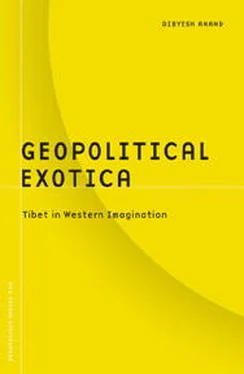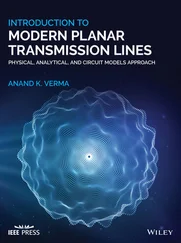The newly independent states, now worlded as the "third world" or "developing countries" were the subject of analyses in IR primarily in two ways: first, as a playground for the rivalry of the powerful countries; and second, when they defied the logical authority of the powerful states (and also the theoretical authority of IR by acting "irrationally"), as was the case with Iran (see Chan and Williams 1994). [16]What went earlier under the name of imperial relations now became a subject matter for imperial history. Instead of studying developments in the third world in the wider historical context of a long period of brutal colonization and a structurally truncated form of decolonization, imperialism was deemed a thing of the past. This general neglect of history (or often an adoption of a reified view of history) should not come as a surprise, for IR always had tendencies toward taking ahistoricized positions. Within realist and liberal IR that accounts for the bulk of the discipline, there is hardly any recognition or analysis of the legacies of colonialism and neocolonialism. The absence of any consideration, be it crude or sophisticated, of neocolonialism in mainstream IR is conspicuous.
Also significant is the lack of a serious effort to deal with themes such as culture, identity, and representation. Mainstream IR has ignored that world politics is a product of wider processes of identity construction in which the Self and the Other are constituted (Connolly 1991). Darby points out that the story of IR "[tells] of how power was exercised, not of how it was experienced" (1997, 23). This has led to a depersonalizing and dehumanizing of the discipline. Wars are studied in terms of strategy and rarely in terms of human consequences.
Mainstream IR's theoretical and empirical closure and lack of self-reflexivity stand in stark contrast to Postcolonial Theory, which remains largely undisciplined. While drawing theoretical inspirations from critical thinkers of both Western and non-Western traditions, a conscious oppositional stance is adopted vis-a-vis the dominant discursive systems in place. Thus, a reflexive criticality is the hallmark of postcoloniality. Imperialism and its impact on peoples and cultures are given a due importance (see Bhabha 1994; McClintock 1995; Richards 1993; Sharpe 1993; Suleri 1992). While problematiz-ing categories such as third world, the voices of third world peoples are promoted, their agency and subjectivity asserted (see Spivak 1988; see also Mohanty et al. 1991). Contemporary problems are historicized, while at the same time "history" as it has come to be commonly understood is put under interrogation (see Chakrabarty 2000; Guha and Spivak 1988; Prakash 1995). Diversity of theoretical input [17]gels with a wide range of issues brought under the label "postcolonial." Postcolonial Theory is certainly multi/trans/ interdisciplinary. In fact, it is antidisciplinary.
As pointed out earlier, rather than being confined to "big" issues, postcolonialism concentrates on the politics of everyday life. Universal ideas and their unproblematic implementation globally are eschewed. While acknowledging the relationship of complicity between the production of explanations and the violence and injustices associated with the structures of imperialism and capitalism, a deconstructive scenario of the kind emphasized by postcolonial theorists like Spivak involves paying attention to critics' complicity with the object of critique, a "disclosure of complicity" (1988, 180). Elsewhere, Spivak suggests two methods to confront the situation- overtly marking one's positionality as an investigating subject and laying bare one's inescapable institutional interests (1993, 56). This kind of self-reflexivity is absent from mainstream IR.
Darby surmises that the contrast between the mobile and variegated nature of the postcolonial discourse and the conservative character of mainstream IR reflects a general situation that exists between established disciplines and new formations of knowledge (1997, 13). I find this contentious. While there is no doubt that new disciplines informed by feminism and cultural and postcolonial theories are more radical, the surmise seems to suggest that it is only a matter of time before the disciplinary establishment would blunt their critical edge. As a corollary, one may also take the implication that when IR was a new formation of knowledge it was radical. Certainly this does not seem to be the case.
A basic difference exists between the established disciplinary knowledge formations such as IR and some of the new ones, a difference that cannot be accounted for by temporal factors only. It is not a question of academic incorporation or assimilation but of metatheoretical differences. Self- reflexivity regarding theoretical stances and empirical agendas was not a prominent feature of older disciplines even when they were new. Claims were not made on behalf of the unprivileged. Justification for disciplinary endeavors was given in the name of methodological correctness. Right from its inception, IR has, on the whole, been a status quoist discipline with limited debate over strategies of maintaining a good international order. On the other hand, many new hybridized disciplines have adopted a critical and oppositional stance vis-a-vis the established discursive and material structures. Not only do they involve a critiquing of the existing norms and structures but they also promote a constant questioning of their own shifting positionalities. While the older disciplines like IR were informed by a heady confidence in the Enlightenment ideas of Progress, Reason, and Emancipation, the new knowledge formations' attitudes to these ideas vary from skepticism to outright rejection. The latter argue that the Enlightenment ideas have sought to universalize particularistic, ethnocentric, and masculinist notions. Unlike older disciplines, which emerged to carve out an exclusive niche for themselves, the new ones seek to challenge disciplinary compartmentalization and circumvent it, and they are often antidisciplinary. While IR emerged as a corollary to the study of politics, Postcolonial Theory's emergence within humanities and social sciences has come as a challenge to various disciplinary boundaries. Its challenging nature offers interesting opportunities for the adoption of a postcolonial approach to world politics, in alliance with critical IR.
Critical IR, Postcolonial IR
Given the potential critical edge in the discourse of postcolonial-ism, it is surprising that even the more radical endeavors in the field of IR, with the exception of feminism, [18]have generally ignored it. For instance, in the pioneering postmodern work International/ Intertextual Relations (Der Derian and Shapiro 1989), the long bibliography does not include works that move beyond the confines of the "West." Even when the term "postcolonialism" is used in IR, for instance in Clapham's work on Africa and the international system (1996), it is devoid of postcoloniality (that is, a postcolonial criticality) and is used in the simplistic periodizing sense of post-colonial times. "[E]ven works embarking from professedly critical postmodern and poststructural perspectives often replicate the Eurocentric ecumene of 'world politics'" (Krishna 1999, xxix).
Why this lack of engagement of critical international theories with a potential ally (postcolonial theory)? Krishna brought attention to this as early as 1993 when he highlighted the fact that some postmodern theorists commence from a remarkably self-contained and self-referential view of the West and are often oblivious to "the intimate dialogue between 'Western' and 'non-Western' economies, societies, and philosophies that underwrite the disenchantment with modernity that characterizes the present epoch" (Krishna 1993, 388). Cautioning against a blanket critique of subjectivity and agency, which he alleges to be a feature of some postmodernist works, Krishna prefers a postcolonial perspective that entails sensitivity to hierarchical relations between races, genders, and classes while also challenging the ethnocentricity of IR.
Читать дальше












